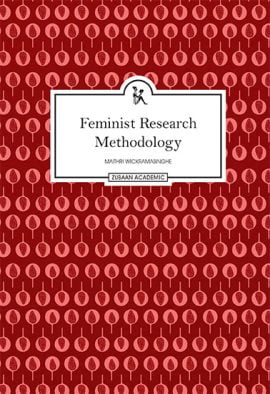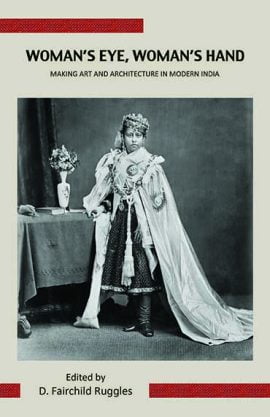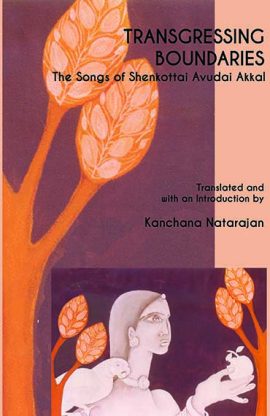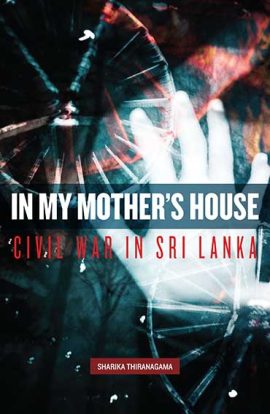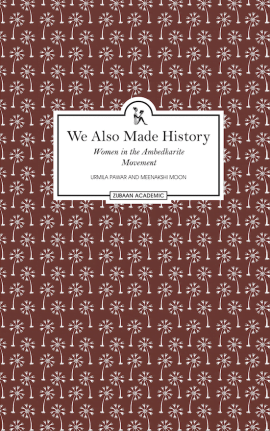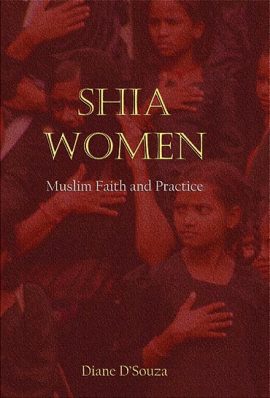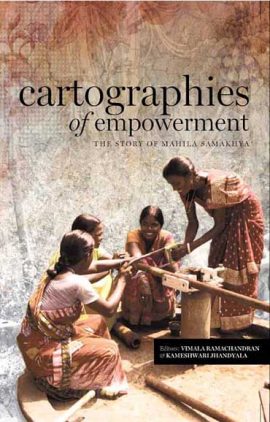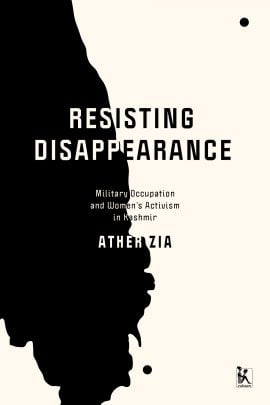No products in the cart.
Return To Shop
Log in / Sign in
Login
Register
Feminist Research Methodology: Making Meanings of Meaning-Making
From ₹ 348
This book focuses on feminist research methodology, exploring and analysing its constituting methods, theory, ontology, epistemology and ethics and politics, as well as the significance of the subjectivity of the researcher in research issues relating to women, gender and feminism in Sri Lanka. The book examines ways of meaning-making for political, ideological and social change, and constructs an example of feminist research praxis.Using this South Asian country as a case study, the author looks at the means by which researchers in this field inhabit, engage with and represent the multiple realities of women and society in Sri Lanka. In analysing what constitutes feminist research methodology in a transitional country, the book links local research practices with Western feminist approaches, taking into account the commonalities, distinctions and specificities of working in a South Asian context.With an emphasis on general issues and debates in global feminist theory and methodology, the book explores the issues of reflexivity, standpoint, gender, women’s agency, empiricism, and the feminist politics of Marxism and democracy, positivism, induction, deduction, post-modernism and postcolonialism.Engaging with and re-conceptualising three traditionally different types of research — women’s studies, gender studies and feminist studies — Feminist Research Methodology provides a framework for researching feminist issues. Applicable at both local and global levels, this original methodological framework will be of value to researchers working in any context.
Select format
This product has multiple variants. The options may be chosen on the product page Woman’s Eye, Woman’s Hand: Making Art and Architecture in Modern India
From ₹ 555
With independence, India experienced a dramatic social rupture but also a recuperation of political autonomy and a new sense of optimism that promised opportunities. The country became a crucible for experimentation in modern and utopian architecture with new buildings, cities and museums giving public face to the nation. Indian architects and architectural projects claimed international attention, and a generation of women entered professions such as architecture and design that had previously been closed to them. They emerged as a pronounced political force, and important patrons of art, architecture and public space.The mid-19th and 20th centuries saw a significant increase in women acting as arbiters of taste and shapers of the built environment. The emerging groups of female designers and female patrons were enabled by new norms for women.The essays in this volume address these developments, posing the important question : did, and do, women produce art and architecture that reflect a feminine perspective ? How did women, otherwise invisible and denied attention in the public sphere, gain voice? The writers look at these questions through both the political frame of gender as well as through family lineage and dynastic connections, and their importance in women's patronage of the arts.
Select format
This product has multiple variants. The options may be chosen on the product page Transgressing Boundaries: The Songs of Shenkottai Avudai Akkal
From ₹ 348Shenkottai Sri Avudai Akkal, a remarkable eighteenth-century woman saint from Tamil Nadu, was a self-realised advaitin who sang passionately about the ecstasy of spiritual union with the Absolute. A desolate and stigmatised Brahmin child-widow, she was initiated into Vedanta by the great master Tiruvisainallur Shridhara Venkatesa Ayyawal. Her songs, a radical elision of the metaphysical sublime and personal devotion, are narrated through existential tropes sourced from daily life, and also offer a powerful critique of the oppressive orthodox socio-religious practices of that period.
Composed in simple, colloquial Tamil, and bringing hope and solace to women in general and widows in particular for almost three centuries, these songs by Avudai Akkal were preserved within the oral tradition by Brahmin women of Tirunellveli district who sang them on all occasions. The songs were documented in the nineteenth and twentieth centuries and have appeared in many Tamil publications. They appear in English translation for the first time in this book. Each song is accompanied by annotations and themed essays.
In My Mother’s House: Civil War in Sri Lanka
From ₹ 348
In May 2009, the Sri Lankan army overwhelmed the last stronghold of the Liberation Tigers of Tamil Eelam -- better known as the Tamil Tigers -- officially bringing to an end nearly three decades of civil war. The conflict resulted in massive displacement of people from their homes.The figures are shocking around 80,000 Muslims were expelled from the LTTE controlled north, and nearly half of all Sri Lankan Tamils were displaced during the civil war.
Sharika Thiranagama's book focuses on two groups of displaced peoples : Sri Lankan Tamils from the north and Sri Lankan Muslims. Through detailed engagement with ordinary people struggling to find a home in the world, Thiranagama explores the dynamics with and between these two minority communities, describing how these relations were reshaped by violence, displacement and authoritarianism.She tackles three major themes: the ideas of home, transformations within the family, and the impact of political violence on ordinary lives and public speech. Only by taking stock of these new Tamil and Muslim identities forged by the civil war can one envisage and work towards a peaceful future for this troubled land.
Select format
This product has multiple variants. The options may be chosen on the product page We Also Made History: Women in the Ambedkarite Movement
Rated 5.00 out of 5
From ₹ 420
Originally published in Marathi in 1989, this contemporary classic details the history of women's participation in the Dalit movement led by Dr B.R. Ambedkar, for the first time. Focusing on the involvement of women in various Dalit struggles since the early twentieth century, the book goes on to consider the social conditions of Dalit women's lives, daily religious practices and marital rules, the practice of ritual prostitution, and women's issues. Drawing on diverse sources including periodicals, records of meetings, and personal correspondence, the latter half of the book is composed of interviews with Dalit women activists from the 1930s. These first-hand accounts from more than forty Dalit women make the book an invaluable resource for students of caste, gender, and politics in India. A rich store of material for historians of the Dalit movement and gender studies in India, We Also Made History remains a fundamental text of the modern women's movement.
Select format
This product has multiple variants. The options may be chosen on the product page Shia Women: Muslim Faith and Practice
From ₹ 348
This book sets out to examine the gendered expressions of Shia Muslim faith. How do contemporary women construct and experience their religious lives? How does gender impact Shia piety? In this intriguing study, the author critically analyses the world of women's religious expression, helping us to better understand not only the ritual lives of Shia women, but Muslim faith and practice in general.The author argues that most research and writing on Shia Islam reflects male expressions and beliefs. Men have dominated the formation of knowledge within the Shia religious hierarchy, as well as the study of Shia Islam within the fields of Religious Studies and Islamic Studies. In contrast, the author takes women's lives and beliefs as her starting point, and uncovers powerful female expressions which dynamically shape Shia Muslim religious life.Diane D'Souza helps us discover a vibrant women-centred narrative underpinning Shia faith. Whether by bringing to life female personalities which profoundly shaped religious history, illuminating the dynamic female leadership within today's religious rituals, or uncovering the fascinating development of a women-only shrine, this book provides a richer, more complete understanding of Shia Islam.
Select format
This product has multiple variants. The options may be chosen on the product page Dalit Women Speak Out: Caste, Class and Gender Violence in India
From ₹ 555"Women always face violence from men. Equality is only preached, but not put into practice. Dalit women face more violence every day, and they will continue to do so until society changes and accepts them as equals." --Bharati from Andhra PradeshThe right to equality regardless of gender and caste is a fundamental right in India. However, the Indian government has acknowledged that institutional forces arraigned against this right are powerful and shape people's mindsets to accept pervasive gender and caste inequality. This is no more apparent than when one visits Dalit women living in their caste-segregated localities. Vulnerably positioned at the bottom of India's gender, caste and class hierarchies, Dalit women experience the outcome of severely imbalanced social, economic and political power equations in terms of endemic caste-class-gender discrimination and violence.This study presents an analytical overview of the complexities of systemic violence that Dalit women face through an analysis of 500 Dalit women's narratives across four states. Excerpts of these narratives are utilised to illustrate the wider trends and patterns of different manifestations of violence against Dalit women.
Cartographies of Empowerment: The Story of Mahila Samakhya
From ₹ 555
Mahila Samakhya is as much a story of a government programme for women's education and empowerment, as it is of the celebration of the struggles of poor women for their rights. Spread across eight states and more than 150 districts in India, the programme grew out of a unique partnership between the women's movement and the government. In this collection of essays, scholars from different parts of the country chart Mahila Samakhya's fascinating journey of setting up poor women's collectives, and women's agency in establishing an equal space and voice in the public domain - a radical departure from the more common approaches of organising women around economic concerns. The writers explore broad gender issues grounded within the field experience of Mahila Samakhya providing insights into its workings at different levels, its conceptual challenges, strategic choices, the opportunities and pitfalls of partnership with government and, above all, the willingness of poor women to come together voluntarily to address and overcome gender barriers.
Select format
This product has multiple variants. The options may be chosen on the product page Inherited Memories: Third Generation Perspectives on Partition in the East
From ₹ 460
In 2015 the Goethe-Instituts in Kolkata (India) and Dhaka (Bangladesh) began a collaborative project entitled ‘Inherited Memories’. The project began with a key question that grew out of discussions on memory and history: was there such a thing as a ‘culture of remembrance’ in India, something akin to the Erinnerungskultur in Germany? The question was asked specifically in relation to the Partition of India in 1947: why was it that such a major historical event found little reflection in public memory? Soon, other questions came up: why was it, for example, that whatever memorialising existed was largely in the West, in Punjab, and the Bengal region, which had lived through two partitions and a war that could be likened to a third partition, was given such little attention? At the time these discussions began, many, perhaps most, of the survivors of the 1947 Partition were no longer alive and their memories therefore lost to us. It is often said that memory jumps a generation, so a decision was taken to talk across borders with the children and grandchildren of Partition refugees in the Bengal region, to look at how memory is passed down, what is retained or lost, and how it is owned and shared by subsequent generations.This book, which comprises interviews from both Bangladesh and West Bengal, is the result of these discussions. Guided by a committed and engaged group of writers from both countries, the book explores, through the stories of ancestors the memories people carried with them, the things they never forgot, the yearnings that did not go away, the journeys that remained unfinished, and those that were accomplished. Through these, it examines how history simultaneously looks so similar and so different from either side.
FIRDOUS AZIM is a professor of Literature in the Department of English and Humanities at Brac University. She is also a member of Naripokkho, a leading feminist organization in Bangladesh. Her works include The Colonial Rise of the Novel (1993), a special edited volume (with Nivedita Menon and Dina Siddiqui) of Feminist Review, ‘Negotiating New Terrains: South Asian Feminisms’ (2009), and a special issue of Inter-Asia Cultural Studies entitled ‘Islam Culture and Women’ (2011).
Select format
This product has multiple variants. The options may be chosen on the product page FIRDOUS AZIM is a professor of Literature in the Department of English and Humanities at Brac University. She is also a member of Naripokkho, a leading feminist organization in Bangladesh. Her works include The Colonial Rise of the Novel (1993), a special edited volume (with Nivedita Menon and Dina Siddiqui) of Feminist Review, ‘Negotiating New Terrains: South Asian Feminisms’ (2009), and a special issue of Inter-Asia Cultural Studies entitled ‘Islam Culture and Women’ (2011).
Resisting Disappearance: Military Occupation and Women’s Activism in Kashmir
₹ 645
Note: This book will be delivered via post to all states of India, except Jammu and Kashmir.In Kashmir’s frigid winter a woman leaves her door cracked open, waiting for the return of her only son. Every month in a public park in Srinagar, a child remembers her father as she joins her mother in collective mourning. The activist women who form the Association of the Parents of the Disappeared Persons (APDP) keep public attention focused on the 8,000 to 10,000 Kashmiri men disappeared since 1989. Surrounded by Indian troops, international photojournalists, and curious onlookers, the APDP activists cry, lament, and sing while holding photos and files documenting the lives of their disappeared loved ones. In this radical departure from traditionally private rituals of mourning, they create a spectacle of mourning that combats the government’s threatening silence about the fates of their sons, husbands, and fathers.Drawn from Ather Zia’s ten years of engagement with the APDP as an anthropologist and fellow Kashmiri activist, Resisting Disappearance follows mothers and “half-widows” as they step boldly into courts, military camps, and morgues in search of their disappeared kin. Through an amalgam of ethnography, poetry, and photography, Zia illuminates how dynamics of gender and trauma in Kashmir have been transformed in the face of South Asia’s longest-running conflict, providing profound insight into how Kashmiri women and men nurture a politics of resistance while facing increasing military violence under India.
ATHER ZIA is a political anthropologist, poet, short fiction writer, and columnist. She is an associate professor in the Department of Anthropology and Gender Studies programme at the University of Northern Colorado Greeley. Resisting Disappearance: Military Occupation and Women’s Activism in Kashmir won the 2020 Gloria Anzaldua Honorable Mention award, the 2021 Public Anthropologist Award, and the Advocate of the Year Award 2021. She has been featured in the Femilist 2021, a list of 100 women from the Global South working on critical issues. She is the co-editor of Resisting Occupation in Kashmir (2018), A Desolation Called Peace (2019) and Can You Hear Kashmiri Women Speak? (2020). She has published a poetry collection The Frame (1999) and another collection is forthcoming. In 2013 Ather’s ethnographic poetry on Kashmir won an award from the Society for Humanistic Anthropology. She is the founder-editor of Kashmir Lit and is the co-founder of Critical Kashmir Studies Collective, an interdisciplinary network of scholars working on the Kashmir region
Add to cart
ATHER ZIA is a political anthropologist, poet, short fiction writer, and columnist. She is an associate professor in the Department of Anthropology and Gender Studies programme at the University of Northern Colorado Greeley. Resisting Disappearance: Military Occupation and Women’s Activism in Kashmir won the 2020 Gloria Anzaldua Honorable Mention award, the 2021 Public Anthropologist Award, and the Advocate of the Year Award 2021. She has been featured in the Femilist 2021, a list of 100 women from the Global South working on critical issues. She is the co-editor of Resisting Occupation in Kashmir (2018), A Desolation Called Peace (2019) and Can You Hear Kashmiri Women Speak? (2020). She has published a poetry collection The Frame (1999) and another collection is forthcoming. In 2013 Ather’s ethnographic poetry on Kashmir won an award from the Society for Humanistic Anthropology. She is the founder-editor of Kashmir Lit and is the co-founder of Critical Kashmir Studies Collective, an interdisciplinary network of scholars working on the Kashmir region
I Have A Question: An Adolescent’s Introduction to Diverse Menstrual Experiences
₹ 600
16-year-old Kalki is at the center of many things — being teased for her body hair, unable to express her concerns about acne and painful periods, and she’s questioning practices that she’s been conditioned into but doesn’t approve of. However, when her favourite younger cousin gets her first period, she resolves to make changes by shaking things up a bit.But how should she go about it?Will she find answers to the million questions she has about her changing body?
Add to cart
Other Skies, Other Stories
From ₹ 420These stories, written originally in Hindi, reveal an author who can think and create in two languages with rare fluency. With her faultless ear for the cadences of Hindustani, Sara Rai illuminates the life of small towns with details which perhaps only a bilingual writer would pick up on. Equally important to her in the landscape of human lives is the presence of trees, birds, insects, and fish. Her Zen-like meditations on the silent yet profound movements of this world are presented in a language that is pared down, spare, and evocative. She remains unseen, but her presence animates each of her characters, whether it be Surabhi from ‘Catfish’, the eponymous Nabila, or Sour Face and Shrew from ‘Golden Anniversary’. The stories are presented here in a lucid translation by Ira Pande and the author.
______________________________________________________________________________________Sara Rai is a writer, translator, and editor. She has published four collections of short stories and a novel in Hindi. The German translation by Johanna Hahn of her selected short fiction, Im Labyrinth (The Labyrinth), won the Coburg Rückert Prize 2019 and was nominated for the Weltempfänger Prize 2020. She has translated five collections of short stories from Hindi into English, most recently Vinod Kumar Shukla’s Blue is like Blue (with Arvind Krishna Mehrotra), which won the Atta Galatta Prize 2019 and the Mathrubhumi Book of the Year Award 2020. Her memoir Raw Umber won the Tata Literature Live Book of the Year Award 2023 in the nonfiction category.
Ira Pande taught English Literature at Panjab University, Chandigarh. She has worked at The Indian Express and later, the journals Seminar and Biblio. She was with Dorling-Kindersley and Roli Books before becoming Chief Editor of the IIC Quarterly. Her English translation of Manohar Shyam Joshi’s T’ta Professor won the Crossword and Sahitya Akademi awards in 2010. She has also written, and later translated into Hindi, Diddi: My Mother’s Voice, an acclaimed memoir of her mother, the late author Shivani.
Contact Us
© Zubaan 2019. Site Design by Avinash Kuduvalli.
Payments on this site are handled by CCAvenue.

